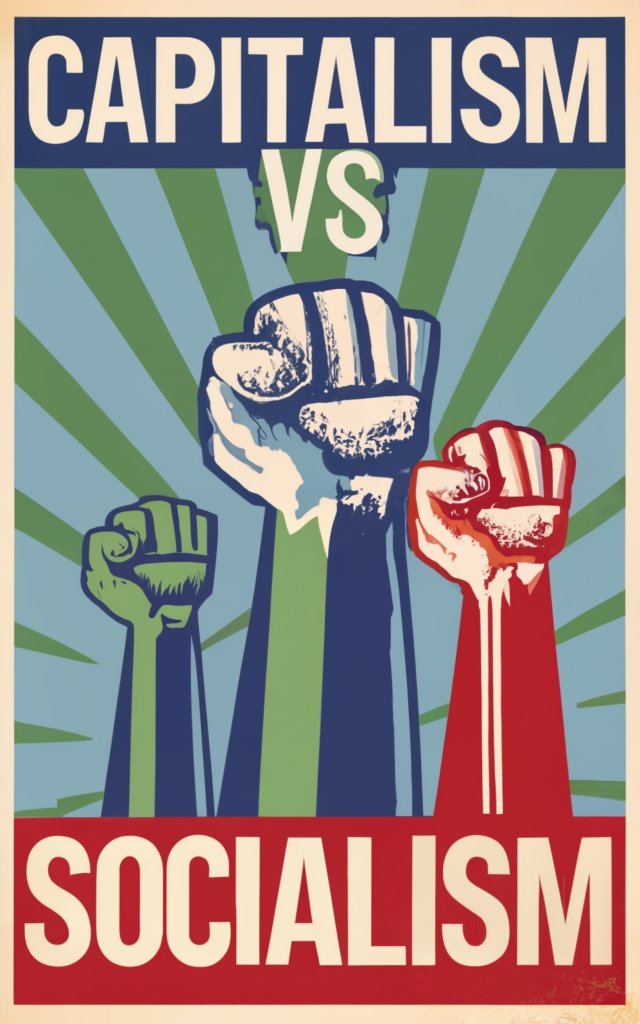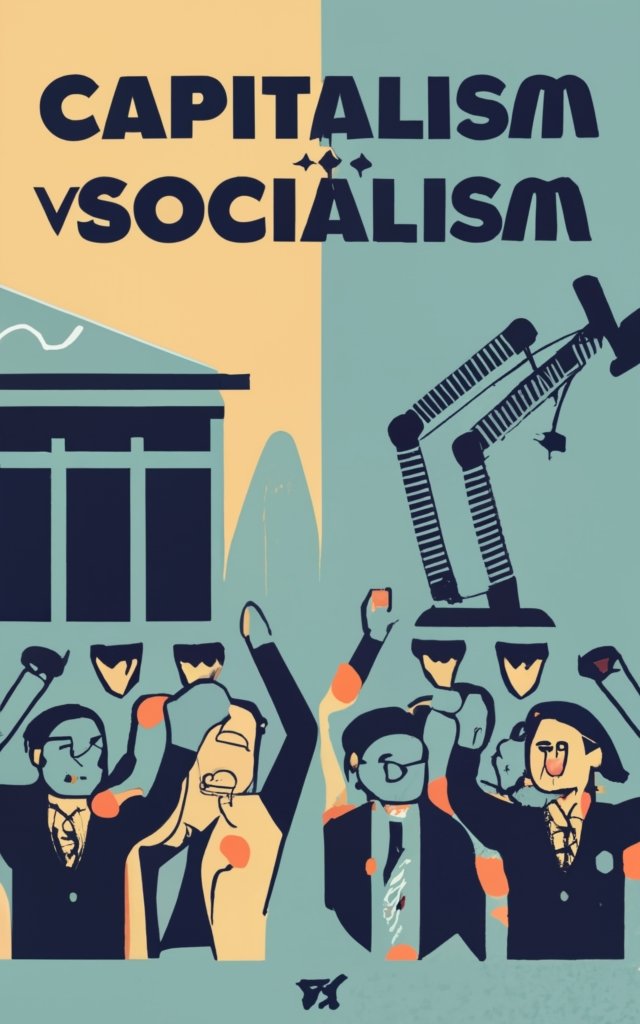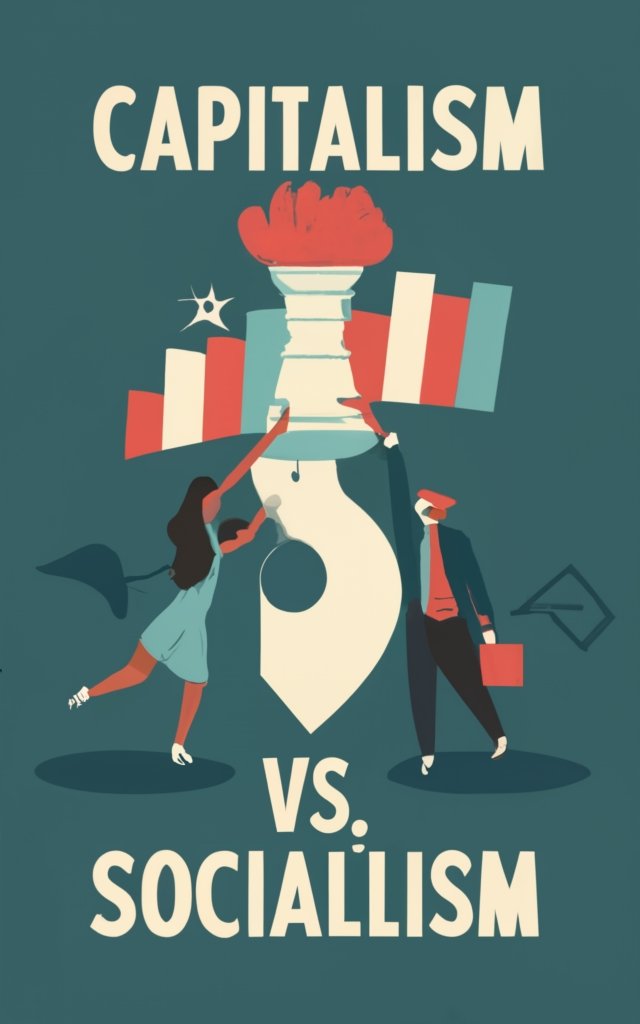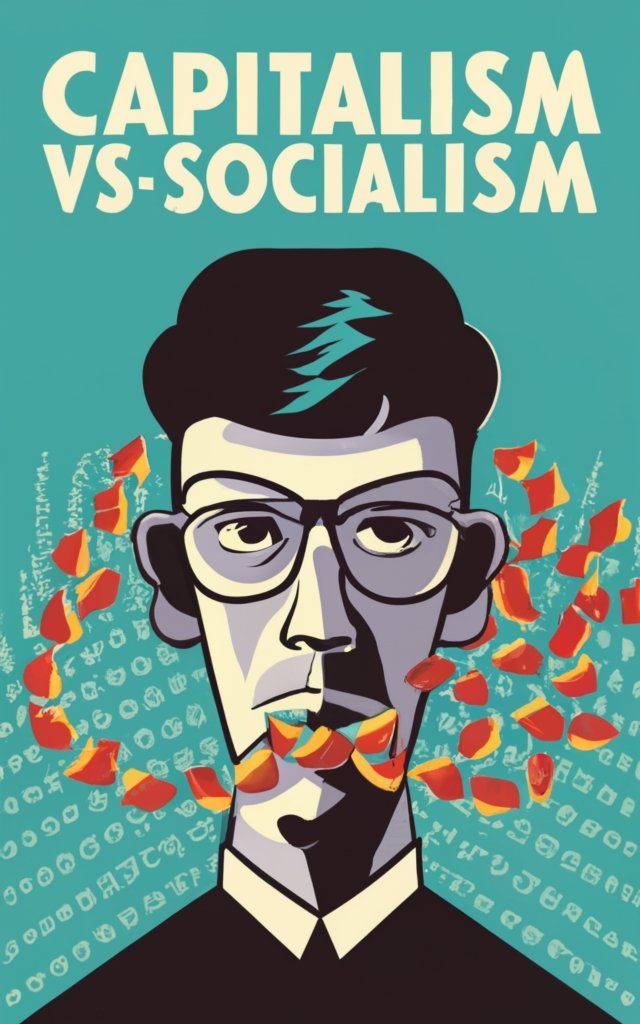Capitalism and Socialism’s Tug of War Reshapes the 21st Century

In a rapidly evolving global landscape, 2023 stands out as a year of ideological reckoning. The debate between capitalism and socialism, long-standing pillars of economic thought, has taken center stage, influencing global policies, elections, and public discourse.
Capitalism and Socialism Through the Ages

The ideological battle between capitalism and socialism has deep historical roots. The Industrial Revolution heralded the dawn of capitalism, promising prosperity through free markets. However, as centuries unfolded, socialist movements rose to challenge the inequalities of unchecked capitalism. The Pew Research Center’s data from 2023 reveals a significant shift: fewer than half of Democrats now view capitalism positively, a decline from 55% in 2019. This trend isn’t confined to America; it mirrors a global reassessment of economic models.
Dr. Aria Thompson, an economist at the International Institute for Economic Studies, observes, “The 21st century is witnessing a renewed vigor in the debate between capitalism’s promise of individual prosperity and socialism’s commitment to collective welfare.”
Beyond Binary Definitions
Today’s world presents a nuanced picture of these ideologies. The Scandinavian model, for instance, melds capitalist economic structures with strong social safety nets, suggesting that pure forms of either ideology might be outdated.
Despite the allure of socialism, especially in addressing rising economic inequalities, it’s crucial to recognize the freedoms and innovations capitalism has fostered. Prof. James Mitchell, a political analyst at the Global Policy Institute, notes, “Dismissing capitalism outright might be premature.”

Gazing into the Future: What Lies Ahead?

The future of these ideologies is shrouded in uncertainty. The National Intelligence Council’s “Global Trends 2030: Alternative Worlds” hints at diverse scenarios. From potential breakdowns in global capitalism to the emergence of hybrid governance models, the upcoming decade is set to be transformative.
Reflecting on the future, Dr. Lila Rodriguez, a researcher at the World Economic Forum, states, “The adaptability of these ideologies and their evolution in response to contemporary challenges will determine their relevance.”
A World Redefined
The ideological contest between capitalism and socialism reflects societal values, aspirations, and concerns. The shift towards systems promising greater equity and collective welfare is palpable as economic disparities widen and 21st-century challenges mount.
However, framing today’s economic debate as merely “Capitalism vs. Socialism” might oversimplify the issue. The real challenge is navigating the nuances of each system and forging a path that ensures sustainable growth, equity, and societal well-being.

The Path Forward
The world stands at a crossroads. The decisions made today will shape the socio-economic landscape for decades. The Corporate Europe report suggests that significant events, like the Wall Street crisis, could redefine global capitalism’s trajectory, much like the fall of the Berlin Wall did for socialism.
Economist Dr. Samuel Kim from the Economic Policy Institute reflects, “The world and our economic systems are evolving. While the debate will continue, it’s essential to remember that no system is perfect. Adaptation, evolution, and a collective commitment to a better future are key.”
In this ever-evolving narrative, the tug-of-war between capitalism and socialism continues to shape global events, policies, and public sentiment. The world navigates the complexities of the 21st century, and the outcome of this ideological battle remains to be seen. The journey ahead promises to be as intriguing as it is challenging.



